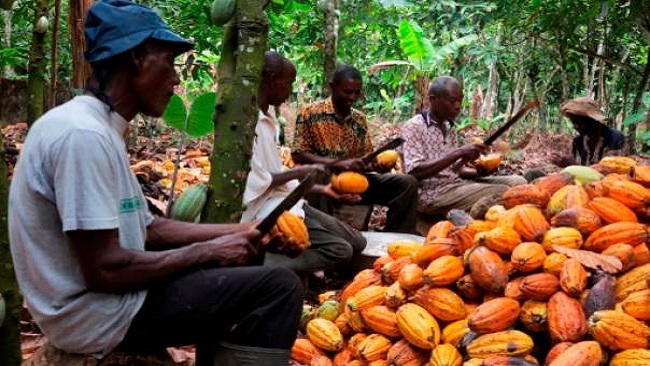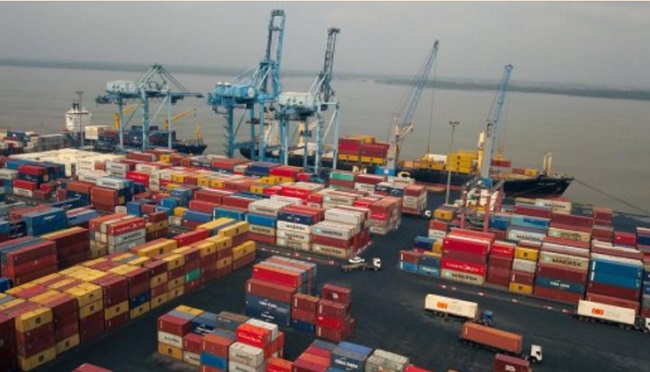11, April 2024
Douala: Célestin Tawamba elected first president of unified business federation 0
During the significant electoral meeting on April 9 in Douala, Célestin Tawamba was elected with an overwhelming majority as the first president of the Cameroon Business Consortium (Gecam), garnering more than 98% of the vote. He was the only candidate. Tawamba, who leads Cadyst Invest, takes on the presidency in the aftermath of a highly debated merger. This merger brought together the Inter-Patronal Group of Cameroon (Gicam), the nation’s premier business organization, and the smaller, yet significant, business group Entreprises du Cameroun (Ecam), which itself was born out of dissent within Gicam.
The merger treaty between Gicam and Ecam was signed on April 5, 2023, and ratified on July 11, 2023, amidst attempts by some Gicam members opposed to the merger to block the assembly. These dissenters, who also initiated legal proceedings, suspected Tawamba of seeking to dissolve Gicam for personal gain. Critics argued that Tawamba, having served two terms as the president of Gicam and ineligible for a third term, orchestrated the merger to head the nascent organization.
Despite opposition claims, the decision for a merger-creation rather than a merger-absorption was made, a choice that did not alleviate suspicions surrounding Tawamba’s motives. This led to the establishment of Gecam, effectively dissolving Gicam despite reservations from both the council of elders and the board of the then-leading business organization in Cameroon.
Tawamba has faced criticism since the inception of his merger proposal but maintained that his goal was simply to unify the business community for a more effective representation of corporate interests. On January 29, 2024, in a letter to the members of the newly formed organization, he responded to the widespread call for his leadership, stating, “I must, in truth, confess that there are requests that duty compels one to accept, lest one commits betrayal. Many of you, individually or collectively, have asked me to take my share of responsibility by continuing beyond just the entry point in the process of solidifying this important edifice that we have built together.
As Tawamba takes the helm of Gecam, numerous legal challenges initiated by members of Gicam opposed to the merger, which resulted in Gecam’s creation, are still pending in court.
Source: Business in Cameroon



























11, April 2024
Biya regime unveils first enclosed gold processing unit in Central Africa 0
The Ministry of Mines, Industry, and Technological Development of Cameroon has officially opened the country’s first enclosed gold ore processing unit in the town of Kana, Eastern region. This groundbreaking facility, a first for Central Africa, was announced on April 5 by the acting head of the ministry, Fuh Calistus Gentry. The project, spearheaded by the companies Codias, Yucam, and Xin Wang, represents a significant leap in mining technology and practices within the region.
Boasting a maximum processing capacity of 500 tons of ore per day, the innovative gold processing system set up at the Shunda Mining site is expected to increase production efficiency to over 90%, boost national reserves, and ensure greater transparency in actual production figures. In addition to being profitable for both the state and operators, it is also lauded for its environmental benefits and as an effective solution to combat child labor in mining operations.
“This system for processing mineralized gravel in a closed tank will significantly reduce the waste of resources, marking a significant change from the precarious situation that currently prevails in the East and Adamaoua regions. It will also significantly reduce the environmental footprint of the mining industry as it is practiced today using methods that are three centuries old,” said Minister Fuh Calistus Gentry, as reported by Cameroon Tribune.
Traditionally, gold ore processing in Cameroon has been done using open systems, which experts say results in a mere 30% average gold recovery rate. This method leads to a 70% waste of resources, which end up being released into the environment. The new system triples the metal recovery rate from 30% to as high as 90% or even 95%. Moreover, what used to be discarded as waste is now seen as a potential deposit for further gold extraction.
The government aims to establish 10 such enclosed system operations across the country. Companies Codias SA, Yucam, and Xing Wang are fully committed to meeting the activity schedule for setting up an enclosed mining system by August 2024 at the Colomine small gold mine project site and at the Batouri-East site for semi-mechanized artisanal mining. Moreover, two more installations are planned at the mining sites in Bétaré-Oya, also in the East, alongside the inauguration of an enclosed system designed by a French company later this month and another by a Canadian company in June 2024.
The government’s goal is to completely abandon artisanal methods. Previously, some semi-mechanized artisanal operators used chemicals like mercury and cyanide for gold recovery, leading to uncontrolled environmental effluent discharge and exposing local populations to heavy metal contamination risks.
In July 2023, Fuh Calistus Gentry urged mining operators to adopt enclosed processing units (or closed circuits) to eliminate any risk of accidental effluent discharge into the environment. On April 5, he reiterated his call for operators in the sector to transition “as soon as possible” to this system or face the withdrawal of their exploration permits. Gentry emphasized that it will no longer be possible to issue a semi-mechanized mining exploitation permit without an enclosed system installation plan or partnership with a company that has such a system. He also gave a six-month deadline for existing permit holders to comply with the new requirement.
Source: Business in Cameroon